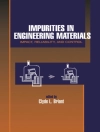Motivation for this Book Ontologies have received increasing attention over the last two decades. Their roots can be traced back to the ancient philosophers, who were interested in a c- ceptualization of the world. In the more recent past, ontologies and ontological engineering have evolved in computer science, building on various roots such as logics, knowledge representation, information modeling and management, and (knowledge-based) information systems. Most recently, largely driven by the next generation internet, the so-called Semantic Web, ontological software engineering has developed into a scientific field of its own, which puts particular emphasis on the theoretical foundations of representation and reasoning, and on the methods and tools required for building ontology-based software applications in diverse domains. Though this field is largely dominated by computer science, close re- tionships have been established with its diverse areas of application, where – searchers are interested in exploiting the results of ontological software engine- ing, particularly to build large knowledge-intensive applications at high productivity and low maintenance effort. Consequently, a large number of scientific papers and monographs have been p- lished in the very recent past dealing with the theory and practice of ontological software engineering. So far, the majority of those books are dedicated to the th- retical foundations of ontologies, including philosophical treatises and their re- tionships to established methods in information systems and ontological software engineering.
Tabela de Conteúdo
Scientific Background.- Overview on Onto CAPE.- Meta Model.- Upper Level.- Supporting Concepts.- Material.- Chemical Process Systems.- Mathematical Models.- Design Principles of Onto CAPE.- Related Work on Ontologies for Engineering Applications.- Evolutionary Improvement and Validation through Applications.- Conclusions.
Sobre o autor
Wolfgang Marquardt, born in 1956 in Germany, studied Chemical Engineering at the University of Stuttgart and graduated with the degree of a ‘Dipl-Ing. ‘ in 1982. Subsequently, he worked for the Institute of System Dynamics and Control of the University of Stuttgart and completed his dissertation in 1988. He was honored with the Award of the Alumni Foundation of the University of Stuttgart (Freunde der Universität Stuttgart). He left the University of Stuttgart in 1989 to do post-doctoral research on a NATO-scholarship at the UWPREL in the Department of Chemical Engineering at the University of Wisconsin-Madison. He was distinguished with the Arnold-Eucken-Preis of VDI-GVC for his accomplishments on the analysis and control of distillation processes in 1990.In 1991 to finish the ‘Habilitation’ on ‘Dynamic Modelling and Simulation of Chemical Processes’. In 1992, he moved to RWTH Aachen University of Technology where he was appointed to Professor for Process Systems Engineering. Since then he has build up a research group of about 30 people with various projects in different areas of process systems engineering. In 1998, Wolfgang has been appointed a member of the North-Rhine-Westfalian Academy of Sciences (Nordrhein-Westfälische Akademie der Wissenschaften). In 2001, Wolfgang has been awarded the Leibniz-Preis 2001 of DFG, which is the most prestigious prize in science and engineering in Germany. Since 2004, he is a member of both the senate and the joint committee of DFG (German Research Foundation). His areas of interest: methods and computer-aids for process modeling, analysis and design emphasizing process dynamics, process monitoring, process operation and process control.
Jan Morbach, born in 1976 in Germany, studied Mechanical Engineering majoring Chemical Engineering at RWTH Aachen University and Carnegie Mellon University, Pittsburgh, and received his Diploma (Dipl.-Ing) in 2002. He worked at AVT – Process Systems Engineering RWTH Aachen from 2002 to 2007 as a research assistant. His areas of interest are: ontology engineering, knowledge management in chemical engineering, , and computer-aided process design. Since 2007, Jan works as a process engineer for Bayer Technology Services in area of conceptual design.
Andreas Wiesner, born in 1981 in Germany, studied Mechanical Engineering majoring Chemical Engineering at RWTH Aachen University and Imperial College London, and received his Diploma (Dipl.-Ing) in 2006. Since 2006, he works as a research assistant at AVT – Process Systems Engineering RWTH Aachen. His areas of interest are: Data integration in chemical engineering, ontology engineering, computer-aided process design.
Aidong Yang, born in 1971 in China, received a B. Eng. degree from Hebei University of Technology in 1992 and a Ph.D. degree from Dalian University of Technology in 1997, both in Chemical Engineering. In his postdoctoral career, he worked for several institutions in the area of process systems engineering, with a focus on information modelling and mathematical modelling of chemical process systems. In particular, he was a research fellow at AVT-process systems Engineering RWTH Aachen from 1999 to 2004, where his research was mainly devoted to the development and applications of ontologies for process engineering. Aidong is currently a lecturer at Faculty of Engineering and Physical Sciences in University of Surrey, with research interests in areas including mathematical modelling and optimisation of process systems, application of knowledge engineering methods in process/product development and manufacturing, and integration of engineering software tools.












